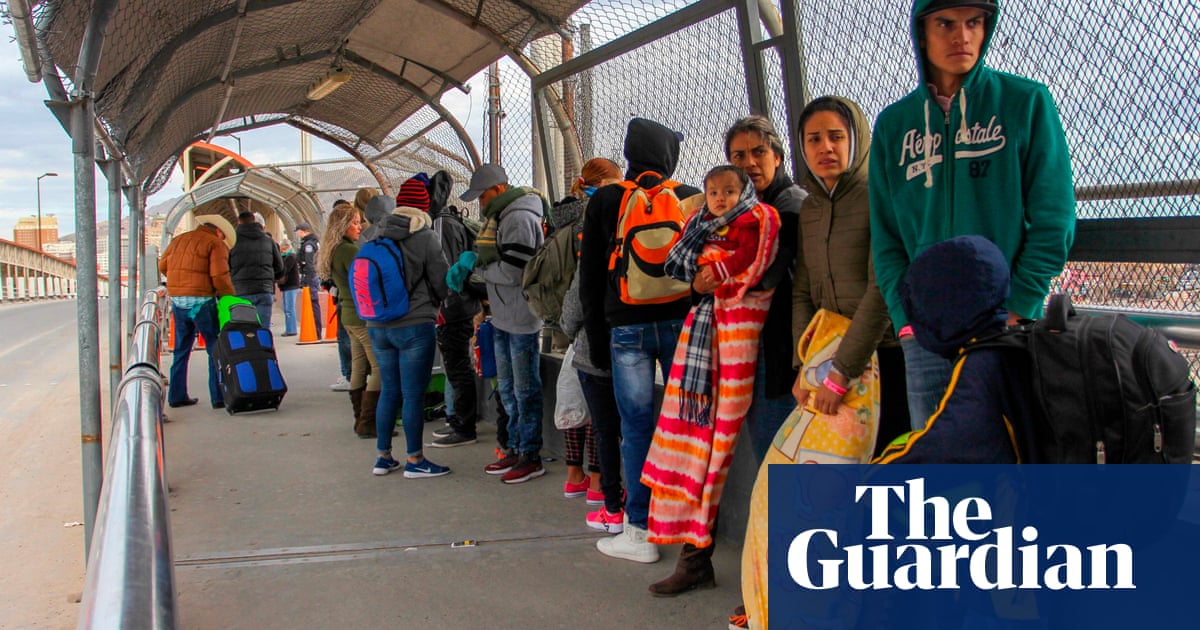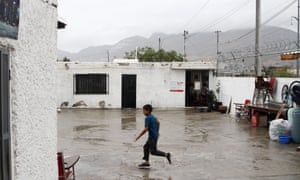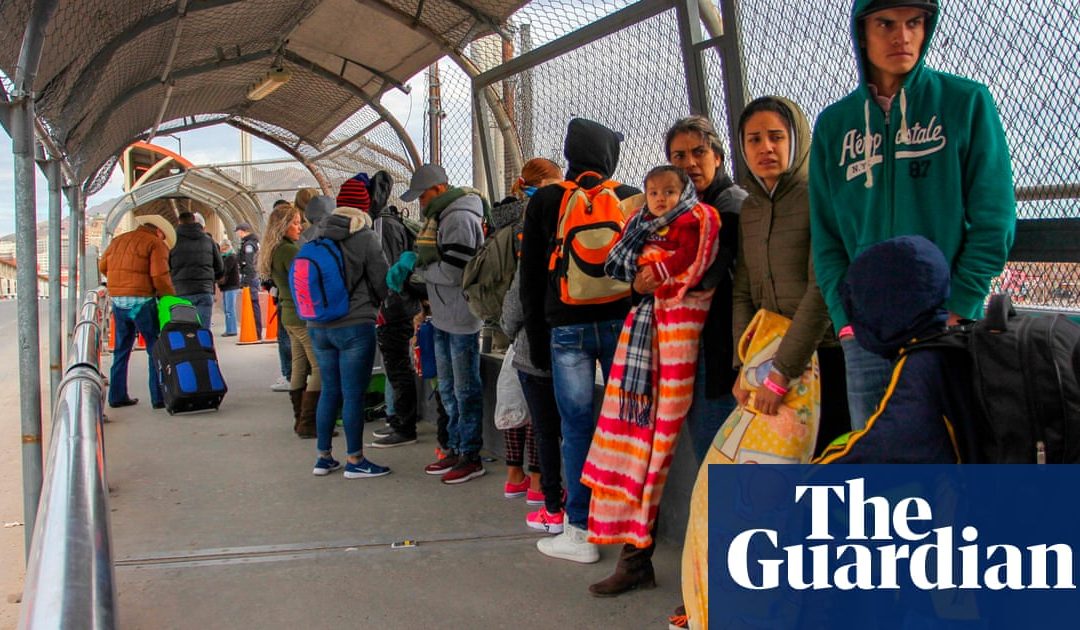Tariff deal calls for expansion of policy forcing Central American asylum seekers to wait in Mexico as their cases wind through US courts

In a cramped San Diego courtroom, immigrant mothers cradled restless babies and toddlers as they waited to go before a judge. After a quick exchange, they were whisked back to Mexico where they face months, or possibly years, before their cases play out in the US.
Hundreds of miles away, a judge in El Paso, Texas, noticed that an infant was fussing and let the childs mother stand up and burp the baby before shipping her and about a dozen others, including six pregnant women, back to the Mexican border city of Jurez.
I am afraid to return to Mexico and Im about to have my baby, a pregnant woman from Honduras told the judge, her belly pushing out against her red shirt as she blew her runny nose.
Nearby, another Honduran woman waited with her two young children, who began to fidget about an hour into the hearing. The five-year-old boy hummed to himself while teasing and tickling his seven-year-old sister.
Scenes like these playing out in US border courtrooms in recent weeks would become even more common under a deal that led Donald Trump to suspend his threat of tariffs on all Mexican exports to the US. A centerpiece of the agreement calls for rapid expansion of a policy that makes Central American asylum seekers wait in Mexico while their cases wind through US immigration courts.
The policy got off to a modest start in January in San Diego and then expanded to El Paso while surviving an initial court challenge from critics who call it a violation of longstanding protections for asylum seekers. The Mexican government said last week that 10,393 Central Americans had been returned to Mexico since the end of January to await court proceedings.
The administration has yet to say when and where the policy will be expanded.
The policy targets Central American families who have overwhelmed the US immigration system in recent months, forcing authorities to release them into the US while they await court appearances. The Trump administration hopes that fewer migrants will come if they know they will have to wait in Mexico.
It is too early to say if the policy will achieve that, but the surging numbers of family arrivals show it has yet to have the desired effect. Border arrests rose to a 13-year-high in May, with El Paso slowly approaching Texass Rio Grande Valley as the busiest corridor for illegal crossings.
Asylum seekers and the Mexican border cities that host them face a large and growing backlog of cases in US immigration courts. For some, it could take years for their court cases to be resolved. During that time, migrants need to work and send children to school.
Migrants at El Buen Pastor shelter who were returned to Jurez on 23 May were not given hearing dates in El Paso until next February. The Rev Juan Ferro, who manages the Methodist shelter, said he no longer imposes a 15-day cap on how long people can stay, realizing that migrants could be in his city for the long haul with few options.

We are living in uncertainty, Ferro said. We dont know how to guide the migrants because we are in the same situation as the migrants We dont know whats going on.
Many say they feel unsafe waiting in Mexico and have had trouble contacting US attorneys willing to cross the border to give legal advice.
Tijuana registered the most homicides of any Mexican city in 2018, followed by Jurez, according to the Justice in Mexico project at the University of San Diego. Expanding the policy to Texass Rio Grande Valley would create more risk because it borders Tamaulipas, the only Mexican border state that the US state department says Americans should avoid due to crime and kidnapping.
The remain-in-Mexico policy was first applied to single adults but quickly expanded to include families, who account for more than half of border patrol arrests. Guidelines for agents in San Diego say the policy should target Spanish speakers and migrants from Latin America, but exempt Mexicans and children traveling alone.
The Department of Homeland Security said on Monday that Mexico had for the first time agreed to full and immediate expansion of the policy but it has not said when and where that will happen.
As the policy is applied to more remote areas, asylum seekers will have to travel longer distances for hearings. In Mexicali, a large Mexican border city, they must travel 120 miles to Tijuana by bus or if they are lucky, in an immigrant rights activists car to report at the Tijuana border crossing by 9am. US Immigration and Customs Enforcement buses then take them to the San Diego courtroom.
In San Diego last week, US immigration authorities kept a close watch on a group of immigrants as they waited to go before the judge. When a baby started to whimper, authorities signaled for the childs mother to wait in the hallway.
A Guatemalan man appeared with his young daughter after another asylum seeker said he had been threatened by a Tijuana taxi driver and feared returning.
Although Mam, one of Guatemalans indigenous languages, was his native tongue, the man said he preferred trying to manage in Spanish rather than waiting for an interpreter. He said he couldnt bear staying in Mexico and wanted to know how long it would take to resolve his case.
The judge, Rico Bartolomei, didnt know.
I do know this: your case wont be instant, the judge said.
Back in El Paso, the Judge Nathan L Herbert listened as the pregnant woman from Honduras described how she had had the flu for four days and hadnt had any medical care until a day earlier, at a shelter in Jurez. She was due to give birth any day, she said as she blew her nose repeatedly.
The judge advised her to ask US Customs and Border Protection for help before being sent back to Jurez.
Read more: https://www.theguardian.com/us-news/2019/jun/11/trump-tariff-migrants-remain-in-mexico


Recent Comments